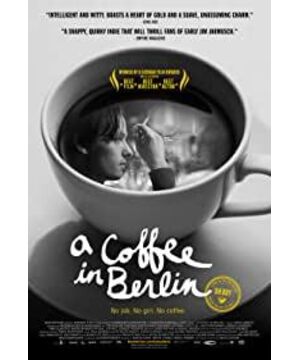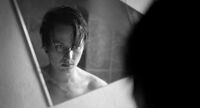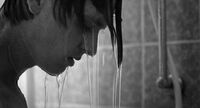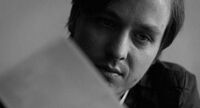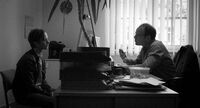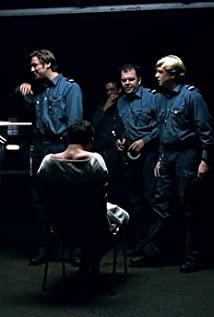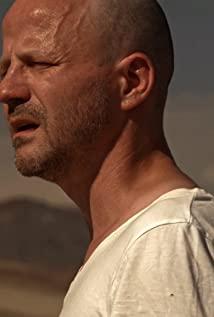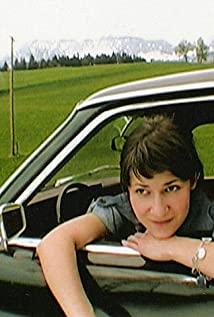Can't remember the first time I watched "Oh Boy". An unmotivated young man, jazz background music, black and white pictures, all kinds of people, these ordinary elements mixed together, is what the film is all about.
At first, I didn't have any special feelings, or I watched too many "boring and trivial" films before I had enough patience to watch them. Stop-and-go these days, the wind blowing, the people I meet, remind me of this movie, Nico, and his ordinary day. Perhaps because of my peers, I slowly resonated a lot.
Some people say that Nico is the representative of confusion, is that true? In the whole film, the director did not deliberately convey who Nick is and what he is doing. This is just an ordinary dropout boy.
On that day, he met all kinds of people: a driver's license assessor with exhibitionism and provocative words who were suspected of being gay; a waitress who mocked Nico for being a "hobo on the street" because he couldn't pay for coffee. ; Neighbor Carl, who suffered a middle-aged emotional crisis, alcoholism, loneliness, and lost confidence in life; Neighborhood neighbor, recognized as a genius actor in college, because he despised the script of the film company he invited, he stayed in a bar and other "real roles". Ma Ze, an ordinary person who has nothing to do, relies on drugs, and looks for opportunities to play tricks; Friedrich, an old man who spent his last night in a bar and died in a foreign country.
Unfortunate people are unfortunate in their own way...
There are exceptions. Schneider, Nico's father's right-hand man, is handsome and well-mannered.
Compared to Nick, Schneider is more like his own son.
The appearance of Nico's father is a small climax of the story. From his mouth, we know that Nico as a child: gave up halfway in trumpet class, halfway in learning Brazilian war dance, and learned fencing, guitar, and piano, and finally all gave up halfway. Nico's father gradually lost patience with him, gave him one last payment, persuaded him to buy good clothes and get a job and then left.
The heroine Eureka Hoffman is an alumnus of Nico. She had a crush on Nico when she was in junior high school, but because she was too fat, Nico was teased as "Little Dump" and "Dumbo" and almost committed suicide.
Friedrich is the last character to appear, the old man who has been away from home for 60 years and seems out of this world in the bar babbling nonsense to Nick. But in the subsequent communication with the old man, Nico had more sympathy and affection for the old man. The old man left a sentence: "There is so much broken glass on the street, I can't ride a bike anymore." Then he left. But sadly, the old man fell to the ground as soon as he walked out of the door of the bar, and finally died.
Coffee is a dark thread in the movie:
Being misled by a waitress at a coffee shop and unable to pay for coffee; trying to have coffee at a meal with Mazer but being told it was sold out; trying to find a coffee on set but finding the coffee pot empty; trying to drink coffee at a golf course Didn't get one either; tried to get a cup of coffee at the bar but was told the mug had been washed.
At the end of the story, Nico sits by the window and finally gets his coffee. Of course, it's also dawn. However, after drinking coffee, what to do next?
The movie doesn't tell us what Nico's decision is after dawn, or whether he has figured out how to go about it. This is the most ingenious part of the movie. I always wanted to find a reason to tell myself that Nico would buy a suit and a pair of leather shoes with the money his father gave him, find a job, and walk down the road. But isn't that also my superficial idea? After the sun rises, Nico is not only wearing clean clothes and looking for a job in peace.
Maybe he should go to Eureka to apologize and ask for her forgiveness; maybe he should go to his neighbor Carl, listen to him chat, play table football with him, and help this middle-aged man get out of the shadows; maybe he should go to Maze and find out together Do something; maybe go back to the train station to find those two inspectors, apologize to them and pay the fare evasion fine;
Maybe find something else to do. Or, shouldn't these things be done one by one?
There are not so many things that must be done in life, and there are not so few choices. What is a successful life? Money, a decent job, and a warm home. Different people have different ideas, and different people are walking different paths. As long as the heart is good, there is no right or wrong. People are born different, why must you follow the rules, go with the flow, or become the self that your parents expected.
Throughout the whole story, Nico has been in a lazy state, maybe it is tiredness caused by confusion, maybe it is stress, Nico has always wanted to drink a clean cup of coffee, refresh himself, and move on.
Nico is a kind and good boy, because he is also confused and at a low point in his life. Carl hides in the basement and drinks heavily all day, and Maze lives on drugs. They are all people who are crushed by life. Willing to rely on drugs and alcohol to anesthetize myself.
The world is not very good, there are many troubles, but the difficulty is not the trouble, but how to face it.
View more about A Coffee in Berlin reviews


